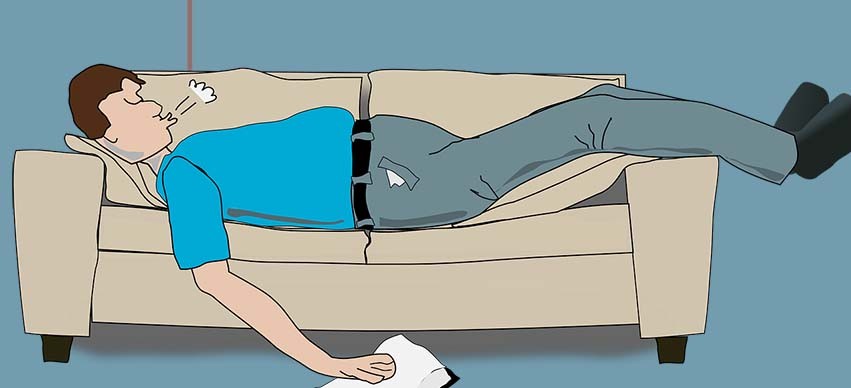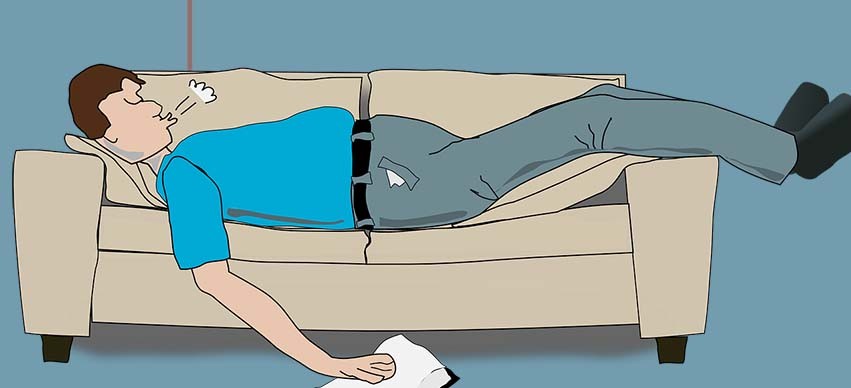
What do you often say when you hear someone sleeping next to you or near to you snore? Most of us take it lightly and believe it to be a sign of deep sleep. Right there and then, we go absolutely wrong about the whole concept and idea of snoring. While snores are a norm or habit that is generally associated with men, it is also a common problem for the women of today. Yes, snoring is a health problem in itself and also an indicator of many underlying health issues a person might be suffering. There are a few health conditions associated to snoring and it is important to understand the root cause of snoring and seek treatment for it accordingly.
The Science of Snoring
While we might categorize the problem of snoring as limited and associated with men, it can affect women also. It tends to be present in men more often, so to say. Snoring can happen due to any one of the following health reasons and also point towards a bigger underlying health problem:
- Nasal blockage: One of the most predominant and common causes of snoring is the obstruction of the person’s nasal airways. This could be due to many reasons again, an allergic reaction to change in seasons, person has a sinus problem, cold, inflammation due to certain diseases or infection, a bad cough or a nose deformity like the deviated septum. Any of these problems can cause a person to snore.
- Loose muscles: Sometimes, the muscle of the tongue and throat are loose and as a result, they fall on to the nasal passage causing it to get blocked as you sleep and give way to snoring. While the reasons listed above can be recognized by the person and addressed by going to a doctor, loose muscles can only be established by a professional doctor. Poor muscle, however, could be a result of excessive smoking, alcohol consumption, and frequent use of sleeping pills over the years.
- Overweight: If a person is overweight, it could cause your throat to gain bulk and as a result reduce passage path for air, giving way to snoring at night. Reducing your weight in this case will help address the problem of snoring
While we have established the causes of snoring, it is also important to understand what health conditions can be associated with snoring. Listed here are a few of these:
- Irregular sleep: as a result of snoring, one might wake up in the middle of sleep as the body gasps for air in between
- Cause Sleep apnea or lack of deep sleep, which makes one feel lethargic and tired later on in the day.
- Cause delayed breathing or lead to long pauses in breath due to nasal passage blockage
- Stress and strain for the heart as it tries to pump harder and faster to get the limited and reduced amount of oxygen to all the parts of the body to keep the vitals going, while you snore your guts out
- Tonsillitis can also cause a person to snore in one’s sleep and often enlists the needs to get the tonsils removed to avoid any further trouble and problems.
How to Reduce Snoring Naturally:
Change your sleeping position: Lying on your back makes the soft palate and your tongue fall onto the back of your throat causing you to snore. Sleep on your side and use a full body pillow to reduce snoring.
Do not drink alcohol: Avoid drinking alcohol at least 5 hours before you hit the sack, as this reduces the resting tones of the many muscles in your throat hence making you snore.
Drink plenty of fluids: The secretions in your nasal passage, tends to get thicker and causes you to snore. Drinking plenty of water helps keep the secretions normal.
A hot shower: If you feel your nasal passage is clogged, have a warm shower for this will help clear the passages and allow you to sleep better.
While many of us don’t think snoring is a cause of concern, it could be a direct pointer to certain medical problems and an indicator for the need to change lifestyle in certain manner. If a person’s snoring has been on an increase, it becomes important to visit a doctor and get one self-assessed to ensure that there is no deeper underlying health problem that needs to be addressed.

